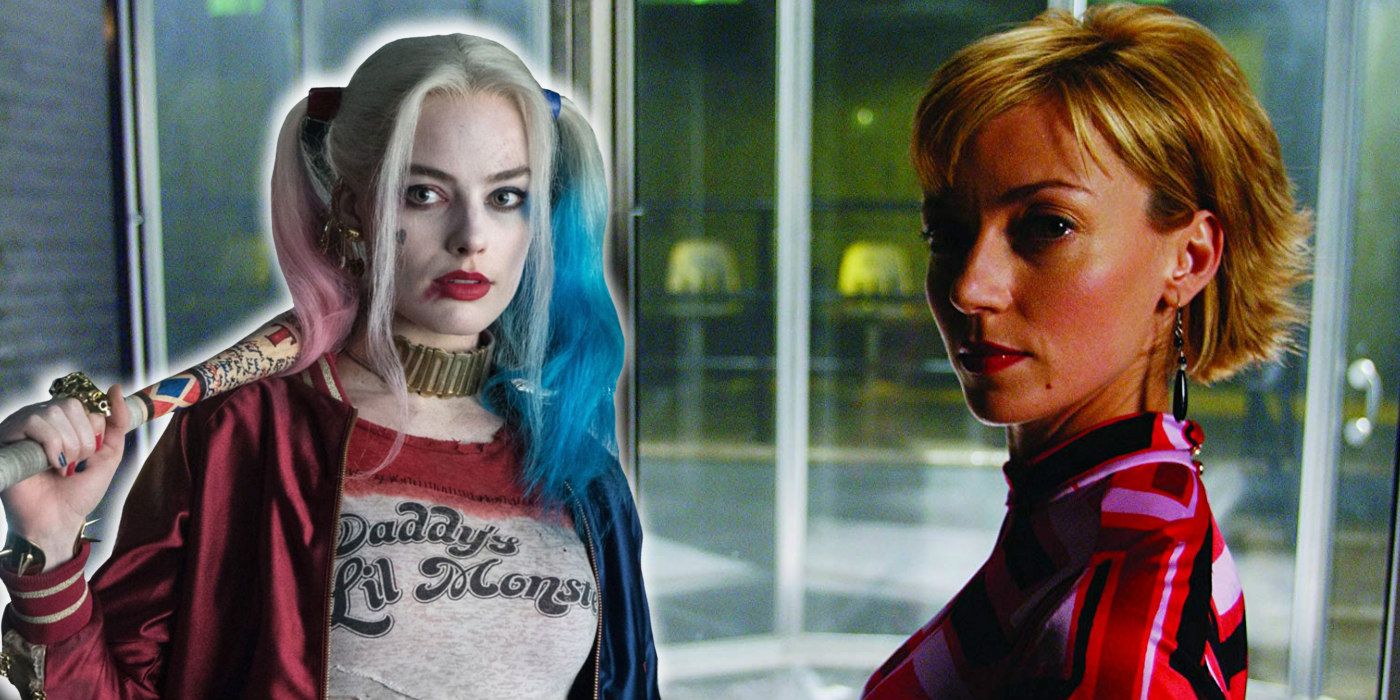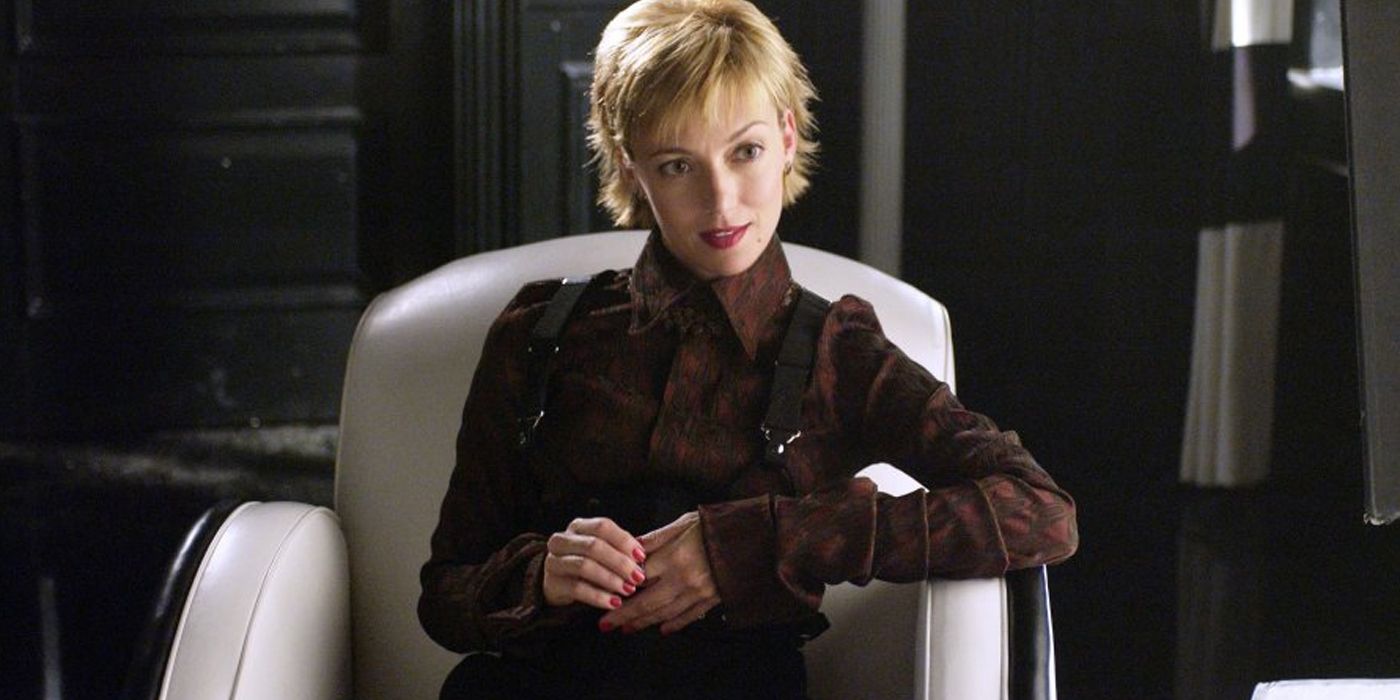Created by Paul Dini and Bruce Timm for Batman: The Animated Series, Harley Quinn first appeared as a bit henchman of the Joker in the episode “Joker’s Favor.” With fans enamored by her design, Quinn’s presence grew in the animated series, until she eventually pulverizing her way into print. Margot Robbie brought the Harley to the big-screen in 2016’s often reviled Suicide Squad, and she'll once again take up the Clown Princess of Crime's mallet in Birds of Prey (And the Fantabulous Emancipation of Harley Quinn). Although 2016 marked Harley Quinn’s live-action cinematic debut, it was not her first live-action appearance ever, and 2020 will certainly not be Quinn’s first live-action run-in with Gotham’s Birds of Prey.
Harley first appeared in the flesh in 2002’s Birds of Prey TV series, which aired on The WB. Birds of Prey followed a heavily retconned version of DC’s all-lady team in a cobbled together timeline of Tim Burton’s Batman films, Earth-Two canon and The Killing Joke. The series was set in “New Gotham” in the aftermath of Batman’s inexplicable disappearance, and followed a team-up of Barbara Gordon as Oracle, Black Canary’s daughter Dinah Redmond, Helena Kyle (a.k.a Earth-Two’s Selina Kyle and Bruce Wayne’s child) as Huntress. Respectively played by Dina Meyer, Rachel Skarsten, and Ashley Scott, the crime-fighting trio clashed with New Gotham’s secret queen of the criminal underworld, Dr. Harleen Quinzel, played by Mia Sara.
Sporting Dutch angles, hammy dialogue and the best of early 2000s' worst fake computer hacking, the series had more in common with Burton’s and Joel Schumacher’s films than with today’s relatively more brooding, high-budget DC Extended Universe. Nevertheless, WB’s short run with Birds of Prey was a tragedy for one particular reason: it had arguably the best written and most empowering live-action iteration of Harley Quinn.
Quinn’s character growth and its evolution between mediums has always been a point of contention, especially in her recent DCEU iterations. Suicide Squad’s depiction of her descent from successful medical professional to a mentally and physically abusive relationship with the Joker created a surge of hyperactive merchandising and romanticization. Throw a dart blindfolded in a local Hot Topic at the time and it was bound to hit Margot Robbie’s skimpy costume and a temporary tattoo set of Jared Leto’s ink from the film. Quinn's “Fantabulous Emancipation” from the Joker’s psychological vice is definitely a step in the right direction for the anti-heroine’s representation and a backpedaling reexamination of her character.
However, WB’s Birds of Prey skipped the backpedaling altogether. The series managed to find a healthy balance between acknowledging Quinn’s codependent past with the Joker and giving the character her own agency. The show even went as far as giving Quinn her own metahuman powers, albeit in the series finale. All things considered, Sara’s Quinn was a self-made woman. Even in Batman: The Animated Series, Quinn discovered her liberation with the help of Poison Ivy; notably in the episode aptly named “Harley and Ivy.”
Despite Sara’s Harley maintaining allegiance with the Joker, her thirteen episode arc on Birds of Prey focused on her single-handed rise to the top of New Gotham’s underworld as she sought revenge against all those associated with the Dark Knight. Technically, she didn’t even officially proclaim herself as Harley Quinn until the final episode, “Devil Eyes.” From pilot to finale, she not only operated as Dr. Quinzel, but successfully tricked Huntress, infiltrated Oracle’s Clocktower and brainwashed the entire city. And those aforementioned metahuman powers? She stole those from another meta-human via a research experiment she backed, not from being thrown into a vat of acid in Ace Chemicals.
There is no arguing that, in general, superhero films and TV shows have come a long way in both visuals and writing since the annals of the early 2000s. But the films of the DCEU can still learn a thing or two from The WB’s portrayal of Harley Quinn. Even today, 2002’s Birds of Prey still has a cult fandom, with Ashley Scott reprising her role as Huntress in the CW’s "Crisis on Infinite Earths" crossover. Part of Birds of Prey's enduring appeal is related to Harley Quinn, and the way the WB series did things no other iteration has since done.
Directed by Cathy Yan from a script by Christina Hodson, Birds of Prey (And the Fantabulous Emancipation of One Harley Quinn) stars Margot Robbie, Jurnee Smollett-Bell, Mary Elizabeth Winstead, Rosie Perez, Ewan McGregor, Ella Jay Basco, Steven Williams, Derek Wilson, Dana Lee, Francois Chau, Charlene Amoia, Chris Messina and Matthew Willig. The film is now in theaters.


